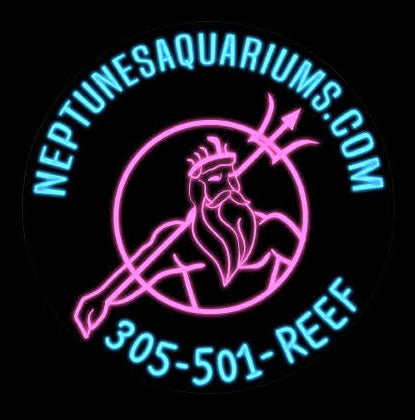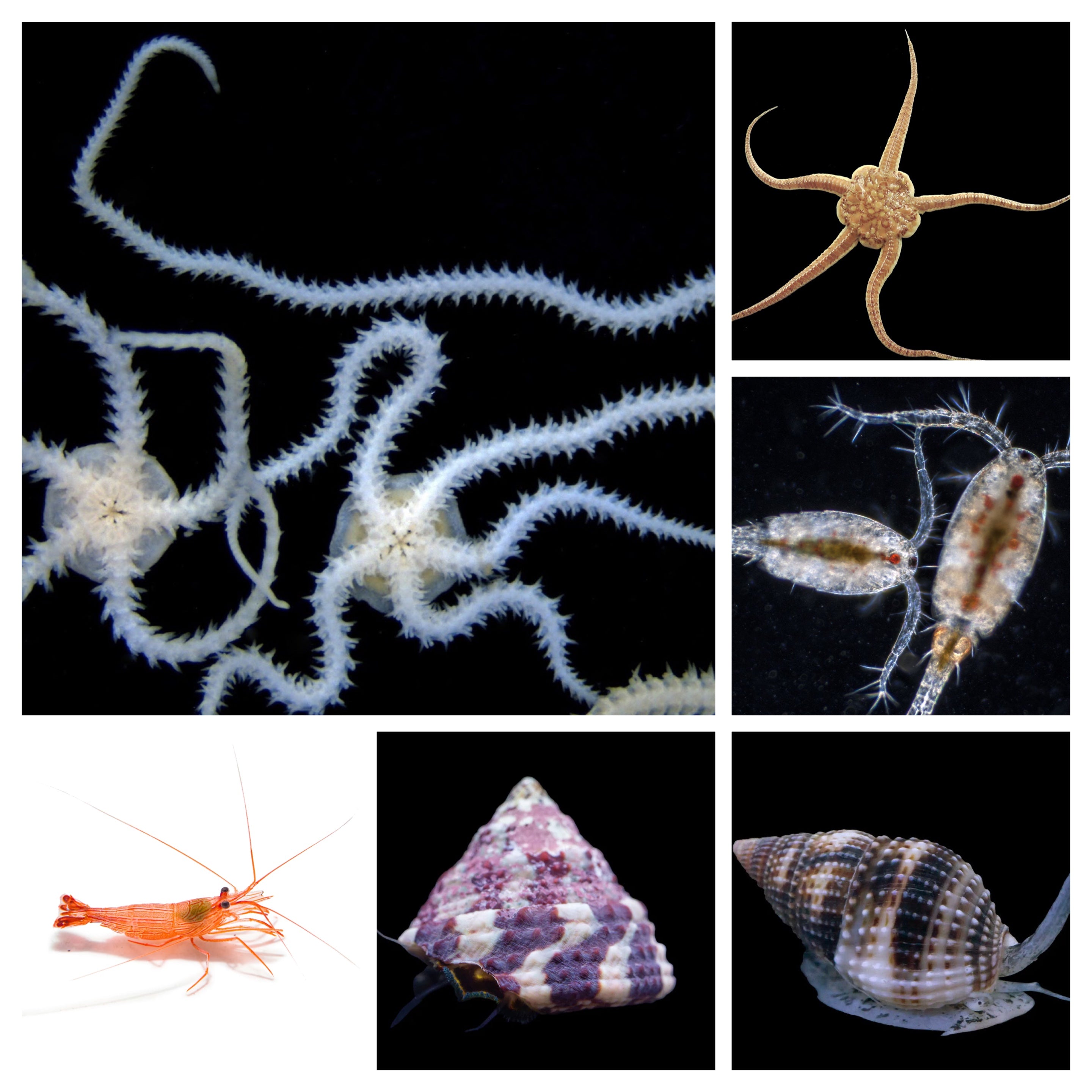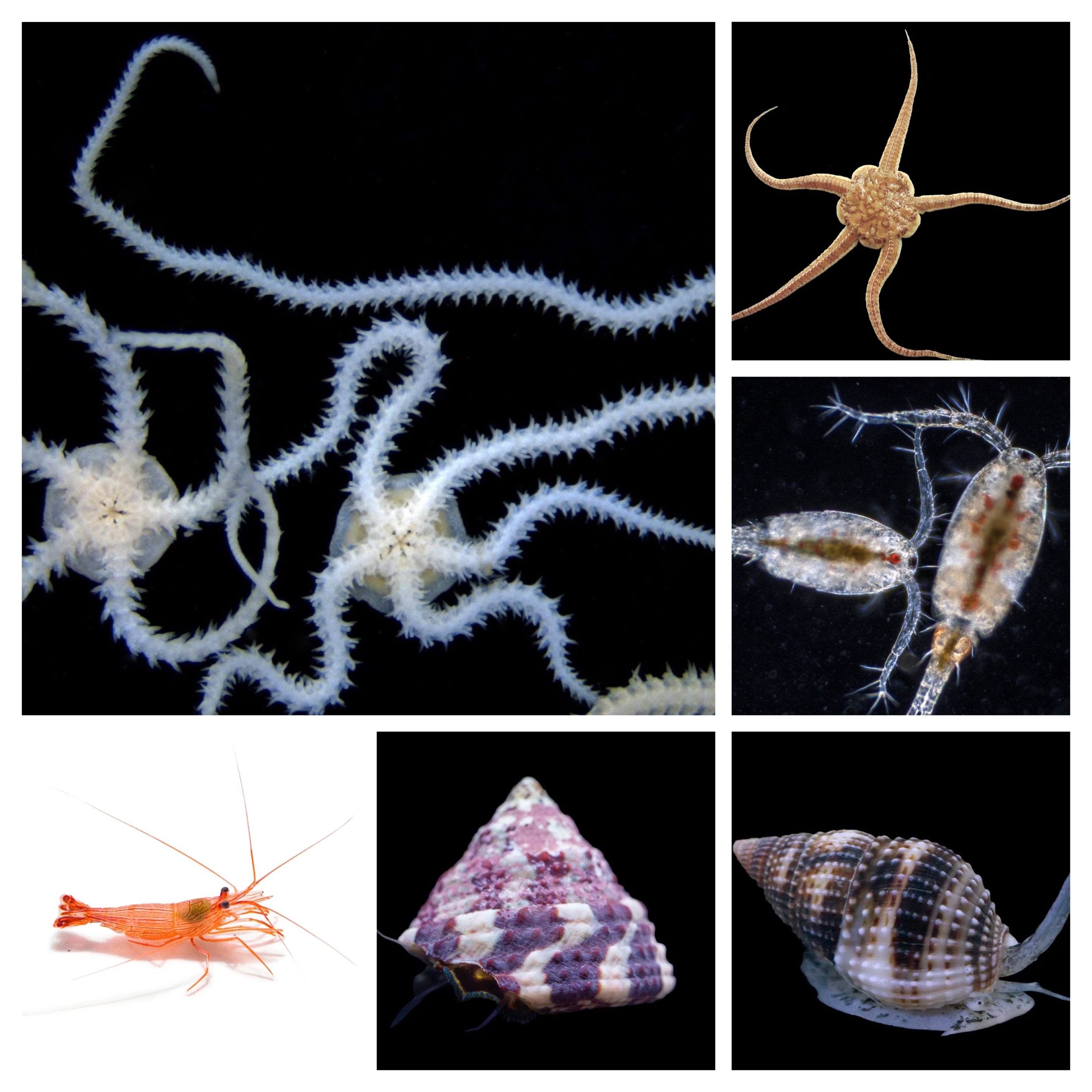Must Have Marine Aquarium Clean-up Crew
What is a Clean-up Crew & Why is it Important?
The clean-up crew is a group of invertebrates whose primary purpose is to help clean and maintain an aquarium. The most common members of a clean-up crew include snails, crabs and starfish. Clean-up crew members remove detritus, leftover food and other waste, preventing them from building up over time. They also play an essential role in keeping the sand bed clean and healthy. While not a substitute for regular tank maintenance, a clean-up crew is always working and can reach spots in your tank that your cleaning cannot.
Nassarius Snails: A sand-sifting, medium-sized snail with a larger-than-life appetite, these snails are known for continuously turning and cleaning the sand bed.
Red Banded Trochus Snails: Small to medium-sized snail also known for their ferocious appetite for algae, will flip themselves from the sand bed and will also reproduce in your aquarium.
Blue Leg Hermit Crab: Larger than the red leg and dwarf zebra crabs with a bigger appetite. The blue-legged hermit crab is known to feast on cyanobacteria, green hair algae. We recommend providing empty shells of various sizes as they are known to kill snails for their shells, so providing them with empty shells is a must.
Emerald Crabs: Omnivore who is known for eating bubble algae, emerald crabs will also eat leftover food, decaying matter, fish waste, other algae, and more.
Peppermint Shrimp: One of the few inverts known to eat the dreaded Aiptesia anemone, this shrimp is a carnivore as well and a great scavenger. Make sure you are buying true peppermint shrimps and not the look alike camel shrimp which is not reef safe.
Copepods and Amphipods:
These tiny organisms fit into the smallest places in live rock and feed on detritus, decaying food, silica, phosphates, nitrates, ammonia and other organic matter. They are also live food for your fish and corals, especially mandarin fish and copperband butterfly fish.
Brittle Stars: Reef-safe invertebrate covered with lots of spines and spikes of various sorts and sizes. They are scavengers that feed on detritus, decaying food, dead organisms, and other organic matter among the rock and sand. They are very tolerant of a wide range of water conditions and will reproduce in your fish tank.
When to Add Clean-up Crews
We recommend adding clean-up crews after the tank is completely cycled and right before the dreaded new tank syndrome stage. Adding them before the tank has finished cycling can expose the clean-up crew to deadly ammonia or nitrite. You can always supplement their feeding with seaweed and pellets if the fishtank does not have an abundance of agae.


